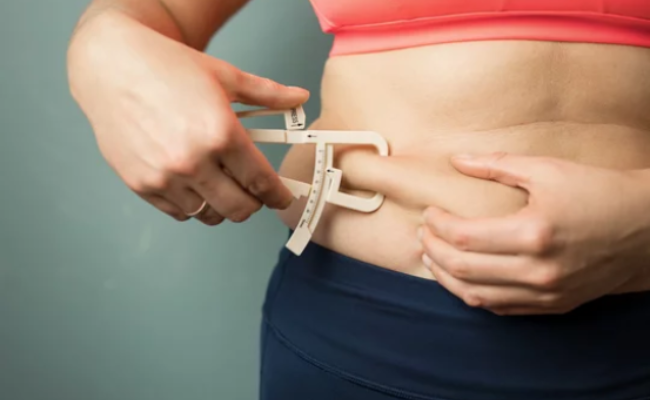How to Cut Fat and Keep It Off for Good
Cutting is when a person, usually a bodybuilder, eats at a calorie deficit to lose body fat while maintaining muscle mass. During this phase, resistance training will continue to keep the muscles lean.
It simply means eating less and upping exercises like cardio or weight training. For some, this might seem stressful, but it is good for one’s health as it helps to lose body fat and help a person stay in shape.
Understanding the Basics of Fat Loss

Before we delve into how to cut fat, we need to understand the basics of body fat and how it affects our health.
Understanding Body Fat
Body fat can be explained as all the fat in your body, and there are two types.
Subcutaneous fat: is the layer of fat stored under the skin which insulates and protects the body. This also plays a role in a person’s body size and is the main focus in the cutting phase.
Visceral fat: This fat surrounds and cushions your abdominal organs.
Several factors may affect a person’s body fat, such as genetics, age, race, level of daily physical activity, and eating habits, to mention a few.
The Science of Fat Loss
The body stores surplus energy as fat for future use. When the need arises, energy is burned, or the body is in a calorie deficit, fat is released from the fat cells and taken to the energy-producing cells. Here the fat is broken down to produce energy.
If the body continues to be in a calorie deficit or burns energy consistently, fat stores will be continually used as energy, resulting in a reduction in body fat.
Developing a Fat Loss Plan
On your journey to lose fat, it is important to have a plan that you will follow with discipline if you hope to see any results.
Setting Realistic Goals
When drafting your plan, make sure you do a proper assessment before proceeding so that you can set achievable goals. You want to be moderate and not set impossible goals. You may not achieve them, which is bad for morale.
Also, you don’t want your goals to be too easy so as not to promote laziness and end up seeing no real results.
Have a journal where you can record and track your progress. You could use the old method of writing things down; otherwise, numerous fitness tracking apps make everything a breeze.
Creating a Healthy Diet
To effectively lose fat, dieting is as important as any form of exercise you will be carrying out. You need to be short of calories to lose body fat as quickly as possible, meaning eating fewer calories than you burn.
To create a healthy diet while cutting, you need to know your calorie intake and build a diet around it with healthy meals filled with protein and fiber. Remember, you have to eat less than you burn.
Incorporating Physical Activity
The importance of exercise during a cutting phase cannot be overstated. Whether it is cardio or weight training, it helps burn fat by using calories during exercise.
Depending on your goals, you can choose whether to engage in high-intensity exercises like cardio to lose fat or weight training to build lean muscle.
Overcoming Common Fat Loss Challenges
Like most things involving a healthy lifestyle, there are bound to be some challenges. We will cover a few.
Staying Motivated
One of the most difficult challenges of dieting and exercising is staying motivated. Some days you may wake up uninspired, and if you allow this to carry on over several days, you may lose interest entirely.
A few tips to stay motivated during this period include writing down your goals and recording and tracking your progress.
Dealing with Plateaus
You reach a plateau when the calories you eat equals the calories you burn. To reduce weight, you need to add more physical activity or reduce calories. For maximum effect, you could do both.
Avoiding Yo-Yo Dieting
Yo-yo dieting, also called weight cycling, is a pattern of losing weight, regaining it, and then dieting to lose it again. A loss of motivation, an emotional phase, or another reason could cause this.
Unfortunately, it has several dangers, which include high blood pressure, fatty liver, and potential heart disease. One way to break the cycle is to make small but permanent healthy changes to your lifestyle and dietary habits.
Conclusion
A cutting diet is meant to achieve fat loss while retaining muscle mass. This diet involves taking your calorie intake, protein, fat, and carb meals into account and ensuring that you consume less than your body needs.
This is not meant to be a permanent lifestyle change but only to be carried out before an athletic event or to lose considerable body fat until a goal is reached.
Resist the urge to cheat on your diet with excessive snacking. Remember, you are cutting fat for your health and will eventually look exceptional, so always keep your goals in mind while you work hard to achieve them.
For more interesting news and articles, check out Inquirer.net.



